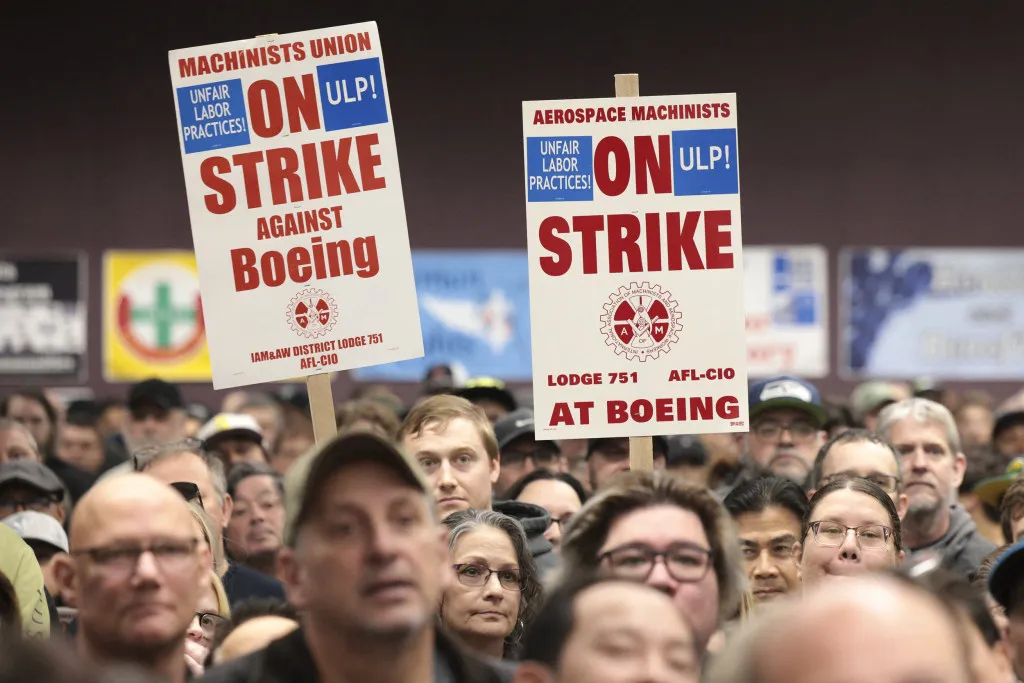Boeing Machinists Reject Labor Deal, Prolonging Strike Challenges

Boeing machinists voted against a new labor deal that included 35% wage increases over four years, leading to an extension of a more than five-week strike that has halted most of the company’s aircraft production in the Seattle area.
This rejection, with 64% of voters opposed, marks a significant setback for Boeing, which has warned of continuing cash burn through 2025 and recorded a $6 billion quarterly loss—the largest since 2020. The ongoing strike is estimated to be costing Boeing about $1 billion per month, according to S&P Global Ratings.
New CEO Kelly Ortberg emphasized the need to resolve the situation to return to normal operations. Earlier this month, he announced a 10% reduction in Boeing's workforce of 170,000. The more than 32,000 machinists in Puget Sound, Oregon, and other regions began their strike on September 13 after overwhelmingly rejecting a tentative agreement that proposed raises of 25%. Their union initially sought a 40% increase.
While the latest proposal included raises of 35%, improved 401(k) contributions, and a $7,000 bonus, it still fell short of member expectations amidst rising living costs. Workers expressed discontent over the loss of pension plans and highlighted the importance of building new aircraft in the Pacific Northwest. The rejection of the contract signals ongoing tensions as the union pushes to return to the negotiating table, and the labor issues represent a continuing challenge for Boeing as it aims to recover from previous safety and quality issues.
This article was prepared using information from open sources in accordance with the principles of Ethical Policy. The editorial team is not responsible for absolute accuracy, as it relies on data from the sources referenced.